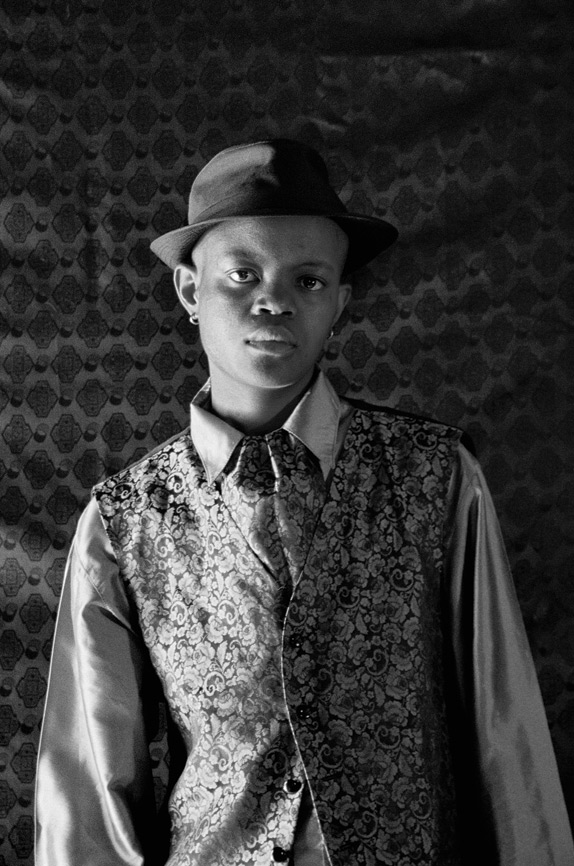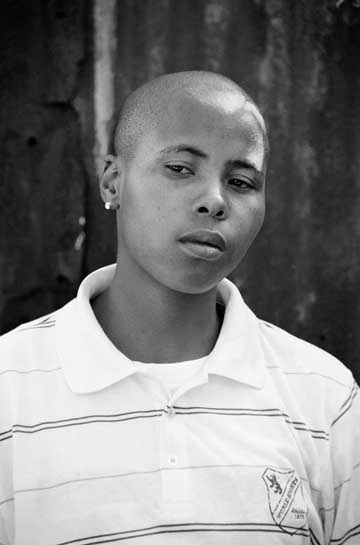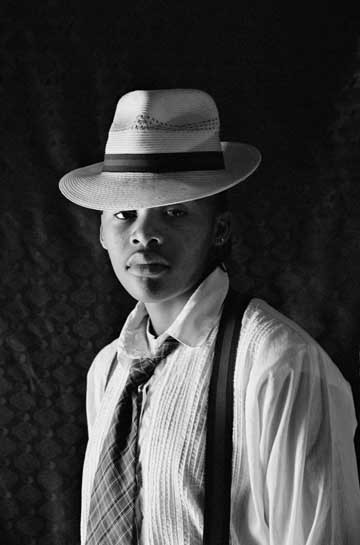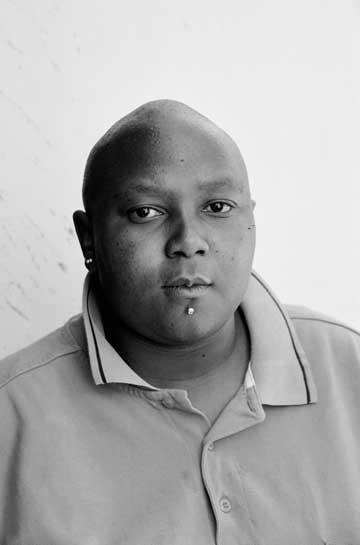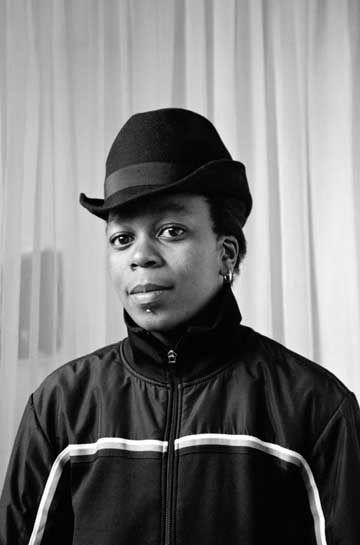I must be willing to tell what I've seen.
I must bear witness.
I must transgress.
- bell hooks, Art on My Mind
As an insider within the black lesbian community and a visual activist, I want to ensure that my community,†especially those lesbian women who come from the marginalized townships,†are included in the “canon,” both in my country and beyond. To this end, my research focuses on a visual history prior to 1994, when the collapse of the apartheid system was imminent, up to the present, when we have constitutionally enshrined rights, but still struggle on a daily basis against discrimination, violence and other hardships. The dearth of visual material on black lesbians as well as social invisibility, underexposure, and patriarchal control, compel me to create a visual history that might serve future generations.
My work represents the black female body in a frank yet intimate way that challenges the history of the portrayal of black women's bodies in documentary photography.
As an activist who identifies as a black lesbian photographer, I face many challenges in this undertaking, including censorship.††At the same time, I am attempting to address the fact that up until 1994, black lesbians were excluded from participating in the creation of a formal queer movement. Directed primarily by white gay activists, the publications generated by the movement failed to include many of the remarkable black lesbian “her-stories,” spanning art, media, sport, politics, and academia. Without voices, the lives of black lesbians are often sensationalized and portrayed in a negative light, or simply seen as threatening mainstream ideas of the nuclear family. For many black lesbians, the stigma of queer identity arises from the fact that homosexuality is seen as un-African.† Failing to conform to expectations, we are perceived as deviants, deserving of “curative rape” to erase our wrong attitudes and make us into “true” women. In contrast to those images, this project aims to commemorate and celebrate the lives of black lesbians in South Africa from an insider’s perspective. It†is about our histories, struggles, lives, and experiences.


